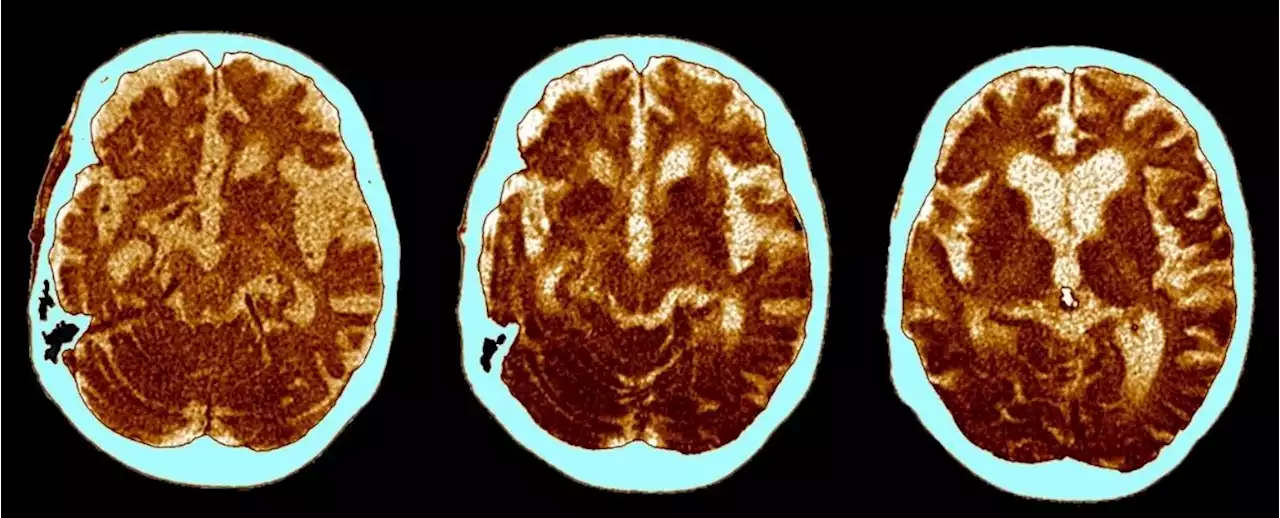A new study further illustrates that when it comes to risk of Alzheimer's disease, even genetically determined forms of the disease, genetics is only one piece of the puzzle. Researchers investigated the influence of genetics and educational attainment on cognitive decline by studying data from 675 people who carry a mutation that predisposes them to early onset Alzheimer's disease. Carriers of this mutation -- known as PSEN1 E280A -- have a median age of 49 for onset of dementia. The team found that among carriers who also carried a second mutation that puts them at heightened risk -- APOE e4 -- had an accelerated age of onset of cognitive decline. Among carriers who had an APOE e2 mutation -- known to be protective -- age of onset was delayed. The team also assessed the effect of educational attainment on cognitive function among PSEN1 E280A mutation carriers, including those who carried different APOE genotypes. They found that higher educational attainment -- that is, more years of education -- was associated with preserved cognitive ability particularly for those at highest genetic risk.
mutation -- known to be protective -- age of onset was delayed.E280A mutation carriers, including those who carried differentgenotypes. They found that higher educational attainment -- that is, more years of education -- was associated with preserved cognitive ability particularly for those at highest genetic risk.
"Higher educational attainment may have a protective effect against cognitive impairment, even in the presence of strong genetic risk factors," said corresponding author Yakeel Quiroz PhD, a clinical neuropsychologist and neuroimaging researcher, director of the Familial Dementia Neuroimaging Lab in the Departments of Psychiatry and Neurology at Massachusetts General Hospital.
The research team included investigators from Massachusetts General Hospital, Brigham and Women's Hospital, Mass Eye and Ear, and national and international collaborators.
United States Latest News, United States Headlines
Similar News:You can also read news stories similar to this one that we have collected from other news sources.
 A High-Tech Headband Could Detect Early Signs of Alzheimer's in Your SleepThere's no cure yet for Alzheimer's, but identifying the risk of developing symptoms as early as possible means that preparations and mitigations can be put in place.
A High-Tech Headband Could Detect Early Signs of Alzheimer's in Your SleepThere's no cure yet for Alzheimer's, but identifying the risk of developing symptoms as early as possible means that preparations and mitigations can be put in place.
Read more »
 Discoveries on memory mechanisms could unlock new therapies for Alzheimer's and other brain diseasesScientists have made a `paradigm shifting' discovery on the mechanisms required for learning and memory that could lead to new therapies for Alzheimer's disease and potentially Down syndrome.
Discoveries on memory mechanisms could unlock new therapies for Alzheimer's and other brain diseasesScientists have made a `paradigm shifting' discovery on the mechanisms required for learning and memory that could lead to new therapies for Alzheimer's disease and potentially Down syndrome.
Read more »
 Images Capture Critical Moment Proteins Collapse in Diseases Like Alzheimer'sTo perform a myriad of functions inside our body's cells, many types of hard-working protein slip into and out of dense droplets called condensates to accelerate biochemical reactions as needed.
Images Capture Critical Moment Proteins Collapse in Diseases Like Alzheimer'sTo perform a myriad of functions inside our body's cells, many types of hard-working protein slip into and out of dense droplets called condensates to accelerate biochemical reactions as needed.
Read more »
 A 'mini-brain' traces the link between concussion and Alzheimer's diseaseDamage associated with Alzheimer's disease begins within hours after a concussion according to results from research that uses a 'mini-brain' lab on a chip device.
A 'mini-brain' traces the link between concussion and Alzheimer's diseaseDamage associated with Alzheimer's disease begins within hours after a concussion according to results from research that uses a 'mini-brain' lab on a chip device.
Read more »
 Molecule reduces inflammation in Alzheimer's modelsA potential new Alzheimer's drug represses the harmful inflammatory response of the brain's immune cells, reducing disease pathology, preserving neurons and improving cognition in preclinical tests.
Molecule reduces inflammation in Alzheimer's modelsA potential new Alzheimer's drug represses the harmful inflammatory response of the brain's immune cells, reducing disease pathology, preserving neurons and improving cognition in preclinical tests.
Read more »
 New blood test detects a key indicator of Parkinson's diseaseResearchers have developed a blood test that detects Parkinson's disease, potentially establishing a way to help diagnose the condition before nervous system damage worsens. A new blood-based diagnostic test would be a major advancement for Parkinson's disease, which afflicts 10 million people worldwide and is the second-most common neurodegenerative disease after Alzheimer's.
New blood test detects a key indicator of Parkinson's diseaseResearchers have developed a blood test that detects Parkinson's disease, potentially establishing a way to help diagnose the condition before nervous system damage worsens. A new blood-based diagnostic test would be a major advancement for Parkinson's disease, which afflicts 10 million people worldwide and is the second-most common neurodegenerative disease after Alzheimer's.
Read more »
